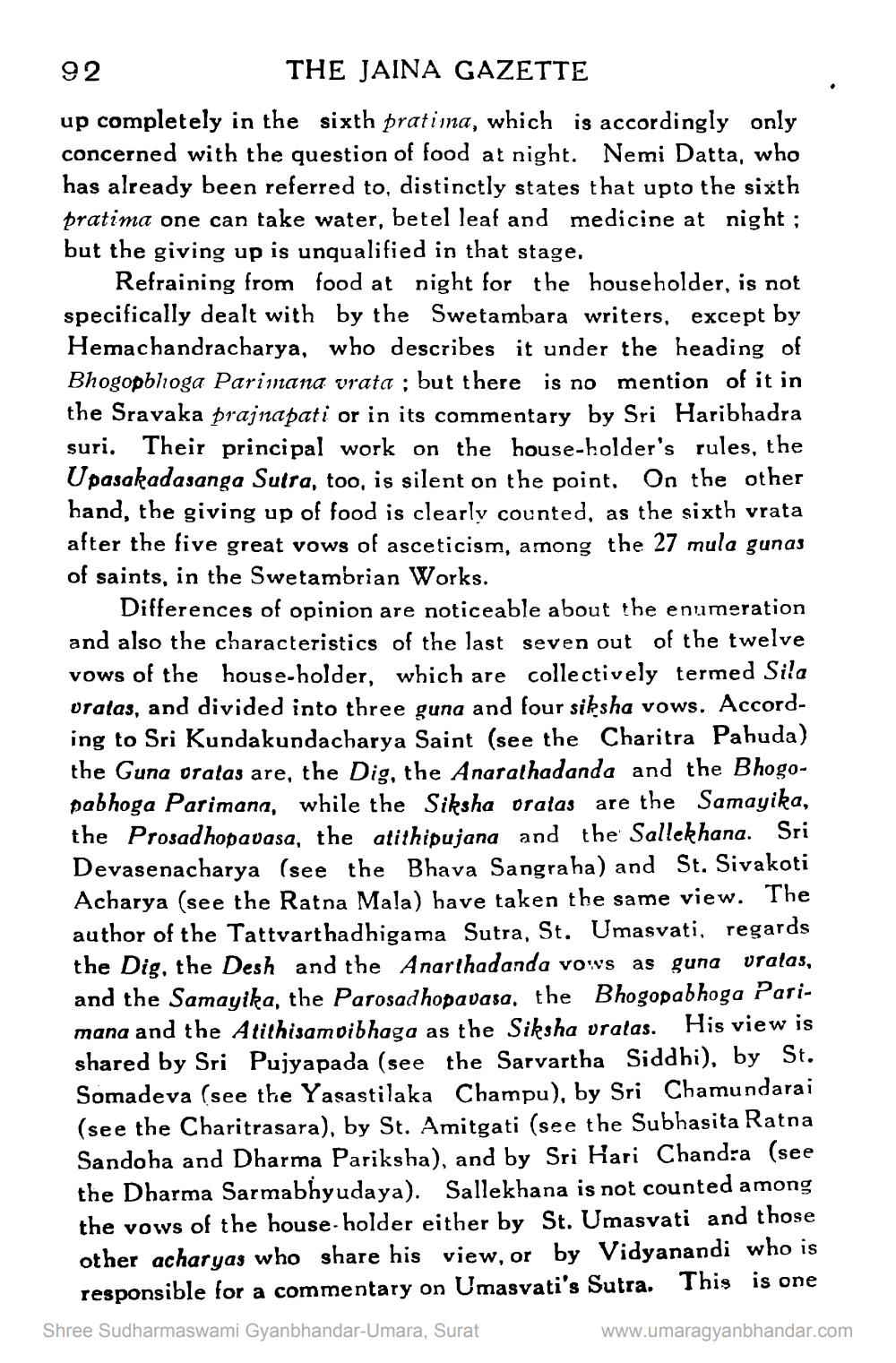________________
92
THE JAINA GAZETTE up completely in the sixth pratima, which is accordingly only concerned with the question of food at night. Nemi Datta, who has already been referred to, distinctly states that upto the sixth pratima one can take water, betel leaf and medicine at night ; but the giving up is unqualified in that stage.
Refraining from food at night for the householder, is not specifically dealt with by the Swetambara writers, except by Hemachandracharya, who describes it under the heading of Bhogopbloga Parimana vrata ; but there is no mention of it in the Sravaka prajnapati or in its commentary by Sri Haribhadra suri. Their principal work on the house-holder's rules, the Upasakadasanga Sutra, too, is silent on the point, On the other hand, the giving up of food is clearly counted, as the sixth vrata after the five great vows of asceticism, among the 27 mula gunas of saints, in the Swetambrian Works.
Differences of opinion are noticeable about the enumeration and also the characteristics of the last seven out of the twelve vows of the house-holder, which are collectively termed Sila vratas, and divided into three guna and four siksha vows. According to Sri Kundakundacharya Saint (see the Charitra Pahuda) the Guna oralas are, the Dig, the Anaralhadanda and the Bhogopabhoga Parimana, while the Siksha oralas are the Samayika, the Prosad hopavasa, the atithipujana and the Sallekhana. Sri Devasenacharya (see the Bhava Sangraha) and St. Sivakoti Acharya (see the Ratna Mala) have taken the same view. The author of the Tattvarthadhigama Sutra, St. Umasvati, regards the Dig, the Desh and the Anarlhadanda vows as guna vratas, and the Samayika, the Parosad hopavasa, the Bhogopabhoga Parimana and the Atilhisamoibhaga as the Siksha vralas. His view is shared by Sri Pujyapada (see the Sarvartha Siddhi), by St. Somadeva (see the Yasastilaka Champu), by Sri Chamundarai (see the Charitrasara), by St. Amitgati (see the Subhasita Ratna Sando ha and Dharma Pariksha), and by Sri Hari Chandra (see the Dharma Sarmabhyudaya). Sallekhana is not counted among the vows of the householder either by St. Umasvati and those other acharyas who share his view, or by Vidyanandi who is
responsible for a commentary on Umasvati's Sutra. This is one Shree Sudharmaswami Gyanbhandar-Umara, Surat
www.umaragyanbhandar.com




